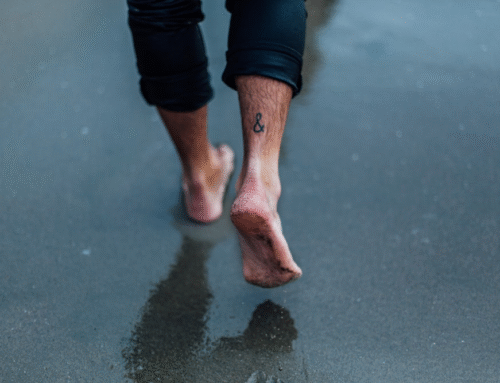Why Toenail Fungus Is Difficult to Treat
Toenail fungus is one of the most stubborn and frustrating infections to deal with. It often starts small—perhaps just a yellow spot on the nail—and gradually develops into thick, brittle, and unsightly nails that can be painful and embarrassing. In a coastal community like Freeport, NY, where residents enjoy beaches, marinas, and active lifestyles, toenail fungus is especially common because fungus thrives in warm, moist environments. The good news is that effective treatment options are available, including the advanced FDA-approved PinPointe Laser treatment offered at Laser Nail Therapy.
Many people underestimate toenail fungus at first, thinking it’s just a cosmetic issue. While discoloration and thickened nails may look harmless, the infection can spread quickly and worsen over time. In severe cases, it can cause pain, emit a foul odor, or even spread to other nails and family members.
Unfortunately, most common treatments have limited success:
-
Home remedies like tea tree oil, vinegar, or even bleach are widely used but rarely work. They cannot reach the fungus beneath the nail bed and can even cause skin irritation.
-
Topical creams and lacquers are safe but have very low success rates since they don’t penetrate deep enough.
-
Oral medications such as Lamisil can be more effective but carry risks of liver toxicity and require frequent blood testing.
Because of these limitations, patients often waste time and money on treatments that don’t deliver lasting results.
Signs of Nail fungus infection
- Discoloration of the affected nail
- Thickening/hardening of the nail
- Unusual white or yellow streaks in your nail
- Brittle nails that crumble
- Redness and swelling
- Foul odor emitting from the nail that might resemble a cheese-like smell
- Pain when walking or wearing shoes from thick nails
- Nail separation from the nail bed
Is something wrong with me if I have nail fungus?
Nail fungus is not an indicator that anything else is wrong with your body. The condition is more common in patients with other conditions like diabetes. But the presence of fungus itself is not a diagnostic tool for any other condition. A large number of patients with toenail fungus are otherwise healthy. Toenail fungus is actually more common in athletes, whose activity levels both help their health and increase the risk of fungus!
It is important to know that toenail fungus is not spread genetically, and you will not pass it on to your children if you have nail fungus. Many people are afraid to pass their infection because they’re unaware of how they contracted this infection in the first place.

Laser Treatment: The Most Effective Option
The most advanced and effective way to treat toenail fungus today is with the PinPointe FootLaser. This technology uses targeted laser light to penetrate through the nail and kill the fungus at its source—without harming the surrounding skin or nail.
Key Benefits of Laser Treatment:
-
High success rate compared to topical or oral options.
-
No side effects or liver risks.
-
No downtime—you can resume normal activities immediately.
-
Usually requires only one session.
-
Painless and safe, even for seniors.
Our nail doctor in Long Island, NY, recommends laser treatment as the top choice for patients struggling with toenail fungus.
Post-Treatment Care: Protecting Your Results
While laser treatment effectively kills fungus, there is always the possibility of reinfection if proper precautions aren’t taken. To stay fungus-free after treatment, patients should follow a strong post-care routine, which includes:
-
Antifungal nail lacquers – Similar to nail polish, these create a protective barrier to prevent fungus from re-entering.
-
Antifungal creams and sprays – These products help reduce the risk of infection, especially if you’re wearing the same shoes you had before treatment. Sprays can disinfect footwear and keep fungus from lingering.
-
Good hygiene habits – Wash and dry your feet thoroughly, change socks daily, and avoid going barefoot in public areas like locker rooms, pools, and showers.
The more consistent you are with prevention, the better your chances of keeping toenail fungus from returning.
Seniors and Toenail Fungus
Toenail fungus can affect people of all ages, but it is far more common in seniors. Aging leads to slower nail growth and weaker immune defenses, making it harder for the body to fight off infections. Seniors are also more likely to have circulation issues or other health conditions that make toenail fungus more persistent.
For older patients, oral medications are often not recommended due to risks and side effects. This is another reason why laser treatment is the ideal solution—it is safe, effective, and does not interfere with other medications or health conditions.
Is Toenail Fungus Genetic?
Is Toenail Fungus Genetic? This is a common question asked by many patients. This is important to learn before seeking out treatment. Toenail fungus is a common condition affecting the lives of people worldwide. When you start to notice the signs of toenail fungus, you might be wondering how it developed. It is a common misbelief that fungal nails are the result of something wrong with your blood. Or inside of your body, meaning genetically. Many patients with fungal nails believe that the infection began in the rest of their bodies. And then spread to their nails through their blood. However, toenail fungus is actually a result of infection through exposure to the fungus in your environment. This can happen by walking barefoot in communal areas like public pools or sharing shoes with someone who has a fungal infection.
Fun Things to Do in Freeport, NY
Freeport, NY, located on the South Shore of Long Island, is a community full of character, history, and waterfront charm. Known for its strong ties to boating and fishing, this village also offers plenty of dining, shopping, and family-friendly activities. Whether you are a longtime resident or a first-time visitor, Freeport has something for everyone to enjoy.
The Nautical Mile
The Nautical Mile is Freeport’s most famous attraction, drawing visitors from across Long Island and beyond. This lively strip along Woodcleft Avenue is lined with seafood restaurants, bars, and shops, creating a festive atmosphere day and night. Outdoor dining is especially popular here, with many restaurants offering waterfront views. On warm days, the Nautical Mile becomes a hub for live music, nightlife, and social gatherings. Visitors can also find charter boats and fishing tours leaving right from the docks, making it easy to spend the day out on the water and return for a seafood dinner afterward.
Boating and Fishing Adventures
Freeport’s location makes it a prime spot for boating and fishing. Local marinas and charter companies offer everything from scenic cruises to deep-sea fishing trips. Whether you’re an experienced angler or just want a relaxing day on the water, Freeport provides endless opportunities. Fishing charters often depart early in the morning and return in the afternoon, making it a great way to spend a summer day. For those who prefer a slower pace, sunset cruises along the coast are a popular option for couples and families.
Family Fun at Cow Meadow Park
Just a short distance from the Nautical Mile, Cow Meadow Park and Preserve is a local favorite for families. The park spans over 150 acres and features open fields, playgrounds, and sports facilities. With plenty of picnic tables and scenic walking trails, it’s a great spot to enjoy the outdoors. Birdwatchers and nature lovers can explore the preserve’s wetlands, which provide a habitat for local wildlife. The park also hosts community events throughout the year, making it a gathering place for residents.
Recreation and Community Events
The Freeport Recreation Center is another hub of activity. It offers indoor swimming, ice skating, and fitness programs, as well as seasonal community events. From holiday celebrations to sports leagues, the center provides year-round opportunities for residents of all ages to stay active and engaged. Freeport also hosts annual parades, summer concerts, and cultural festivals that reflect the community’s diversity and energy.
Shopping and Dining Beyond the Nautical Mile
While the Nautical Mile gets much of the attention, Freeport also has a variety of shops, markets, and local restaurants scattered throughout the village. Fresh seafood is the star here, but you’ll also find pizzerias, bakeries, and international cuisine. Exploring Freeport’s local businesses is a great way to experience its unique charm while supporting the community.
Proximity to Nearby Destinations
Another advantage of Freeport is its location. Just a short drive from Merrick, Baldwin, and Oceanside, Freeport is also within easy reach of larger destinations like Hempstead and Jones Beach State Park. This makes it a convenient starting point for day trips around Long Island. Many visitors combine a stop at the Nautical Mile with a beach day, shopping trip, or live performance at a nearby venue.
Toenail Fungus Treatment in Freeport, NY
If you’re struggling with discolored, thick, or painful toenails, don’t wait for the infection to get worse. At Laser Nail Therapy, we specialize in treating toenail fungus with the PinPointe FootLaser—the safest and most effective solution available.
Why Healthy Feet Matter in Freeport
With so many activities centered around walking, boating, and socializing, healthy feet and toenails play a big role in enjoying all that Freeport has to offer. Toenail fungus can make walking along the Nautical Mile or spending the day at Cow Meadow Park uncomfortable, especially if nails become thick, painful, or embarrassing to show in sandals. By seeking treatment, residents can fully enjoy the village’s active lifestyle without the discomfort or self-consciousness caused by toenail fungus.
Prevention Tips to Stay Fungus-Free
Whether you’re recovering from toenail fungus treatment or trying to avoid it altogether, these steps can help:
-
Keep toenails trimmed and clean.
-
Wear breathable shoes and moisture-wicking socks.
-
Alternate shoes to allow them to fully dry between uses.
-
Always wear sandals at pools, gyms, or public showers.
-
Bring your own nail tools to salons to avoid cross-contamination.
By practicing these habits, you can greatly reduce your risk of reinfection.
Call us today at (800) 672-0625 to schedule a free consultation with our nail doctor in Freeport, NY, or visit one of our 150+ locations nationwide. With just one treatment, you could finally take the first step toward clear, healthy nails again.





